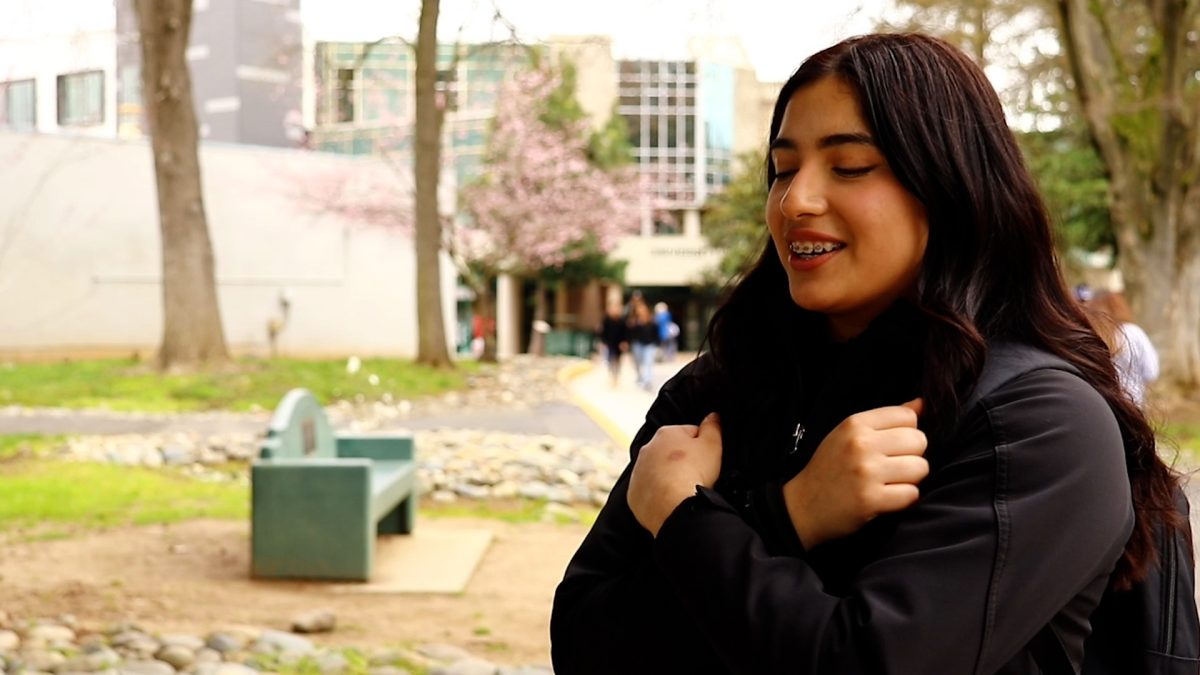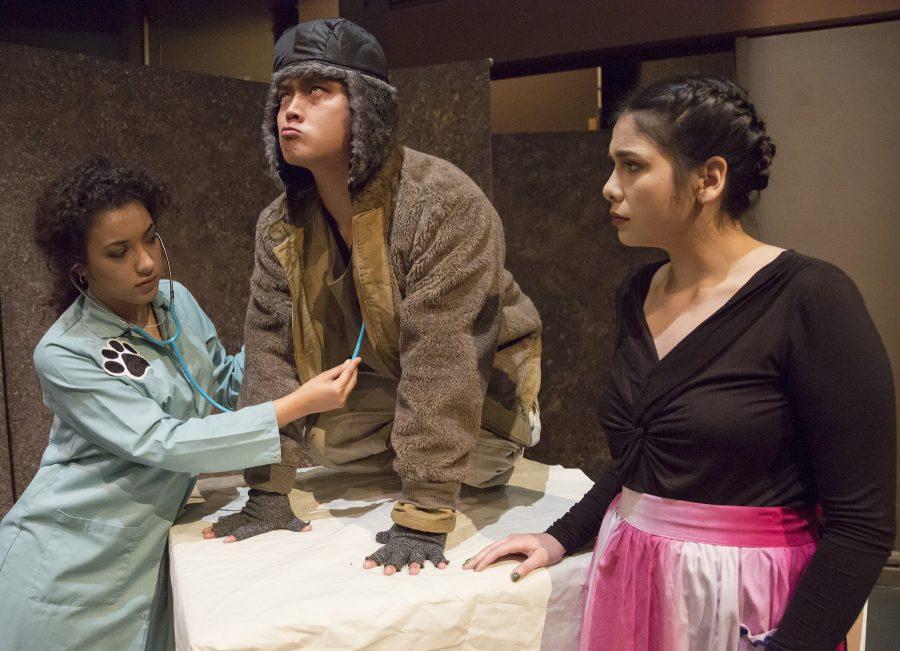“Stories to be Told,” a play directed by Roberto Dario Pomo and Lisa Carmen Ross, will be performed at the Playwrights’ Theatre in Shasta Hall on Wednesdays through Sundays until March 19.
The play explores different narratives of human exploitation. Pomo said that some of the narratives include how the powerful take control of the powerless and how survival can be difficult in an advanced society.
“Right now, in our contemporary society, we’re dealing with a lot of issues that are a part of what we call ‘the democratic system,’ but are usually ignored,” Pomo said. “For instance, how the government treats illegal immigration — how as a nation, now, supposedly we want to build a wall to divide neighbors.”
Some of the plot lines deal with gender roles in society, such as the story of a vendor and his wife. In this story, a woman wants to work, go to school and do more with her life. Instead, she is confined to the house where she lives with her husband and children. Her husband, on the other hand, works as a street vendor.
The street vendor suffers from an abscessed tooth, but is unable to treat it because he has no health insurance. His wife makes several attempts to help ease his pain and give him medicine, but he refuses her help.
Nick Micheels, an alumnus of the music department, plays the role of the street vendor. Micheels said that his character does not treat his wife particularly well.
“She explains that she wanted to work and go to school, and the vendor says right off the bat, ‘No, you got to stay home with the kids,’ ” Micheels said. “So he kind of limits her. He gets to do whatever he wants to really, and she does nothing but try to help him the whole time.”
Nicole Anne Salle, a senior theater major, plays the role of the vendor’s wife. She interprets the story as a critique of those who work too much and end up losing sight of what really matters.
“The first time I read this script, I was just intrigued,” Salle said. “For the story with the vendor and his wife, I think it was a critique on how money plays a role on our lives without us realizing or understanding it. You miss out on your life and your family and just get so involved in making money that you don’t take the time to take care of yourself or those around you.”
“Stories to be Told” was written by Osvaldo Dragun, an Argentinian playwright who specialized in the dramatic genres of absurdism and the grotesque. Pomo translated and adapted the stories.
Instead of Buenos Aires, Pomo changed the setting of the play to New York City. Another change he made was the addition of multimedia and a story reflecting the lead contamination of water in Flint, Michigan.
The set for “Stories to be Told” is predominantly gray, with red being the only color. It features blocks sitting on top of round turntables with different political images pasted on them.
Behind the turntables, against the back of the stage, is a large mural painted by set designer Stephanie Conrad.
“The set is very anti-realism, its non-realistic—almost sculptural,” Pomo said. “So, it’s more symbolic and laden with social political messages.”
Conrad said that she tried to capture major issues such as the Flint water crisis, Black Lives Matter and the deportation of people who live in the U.S. illegally.
“When I got asked to design ‘Stories to be Told’ and I read the script for it, I thought it was very timely in term of what was happening with our country,” Conrad said. “I’m concerned about the turmoil in the country, that is what this is all about and how it affects our students, our education system and our society.”
Ross said that she personally related to the play, as she understands the struggles of being a wife and trying to make ends meet in a society that is based on monetary gain.
She said that she hopes the play will provoke thoughts and have people discuss the issues they saw depicted on stage.
“I hope that there’s a little bit of that, that they take away,” Ross said. “If there’s nugget of it that’s actually personal, like I could see myself in some of the roles of the wives. If that happens to an audience member then I will be super pleased as well.”


































































































































